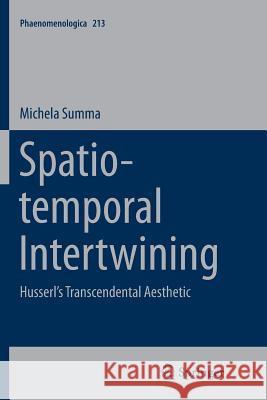Spatio-Temporal Intertwining: Husserl's Transcendental Aesthetic » książka
Spatio-Temporal Intertwining: Husserl's Transcendental Aesthetic
ISBN-13: 9783319383163 / Angielski / Miękka / 2016 / 347 str.
This volume explores Husserl's theory of sensibility and his conceptualization of spatial and temporal constitution. The author maps the linkages between Husserl's 'transcendental aesthetic', the theory of pure experience in empirio-criticism, as well as Immanuel Kant's transcendental philosophy. The core argument in this analysis centers on the relationship between spatiality and temporality in Husserl's philosophy. The study interrogates Husserl's understanding of the relationship between spatiality and temporality in terms of stratifications, analogies and parallelisms. It incorporates a discussion of the potentialities and limitations of such an understanding. It concludes that such limits can be overcome by adopting an understanding of spatiality and temporality as interwoven moments of sensible experience--a 'spatio-temporal intertwining'. This 'intertwining' is made explicit in a thorough inquiry into three central topics in the phenomenological analysis of sensible experience: spatio-temporal individuation, perspectival givenness and bodily experience. The book shows how such an inquiry can form the bedrock of a dynamic and relational understanding of experience as a whole.











